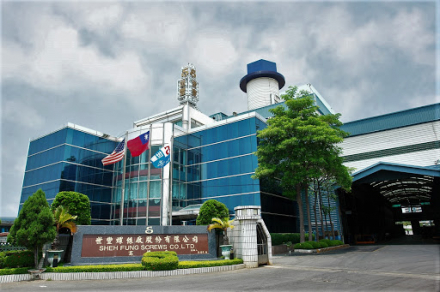Industry Activities
A Holistic Look into Taiwanese Fastener Business Successors’ Strategy Development


Add to my favorite
2020-08-20
Over the decade, Taiwanese fastener business successors (also known as the next fastener generation, hereinafter referred to as “the successors”) have expressed themselves at the forefront of business grounds. Some of them have taken the family's helm, while some are still new to steering the family business. We have interviewed fastener business owners for long, and noticed some of them are visionary and adventurous young-to-middle-aged successors who are gradually shaping up the characteristics and creativity of their generation. What is brought to our awareness and interest is an issue that calls for the attention of fastener forerunners and successors in Taiwan— “Will the successors set off a new trend in the Taiwanese fastener industry?”, which then raises your question— “What characteristics have we observed from these successors?”
Fading Dividing Line Among Manufacture, Trade and Sales Routes
There were already signs of fading boundaries of fastener business types in as early as the generation of forerunners. The global market competition propelled them to deploy in Southeast Asia, China and then the U.S. in early days. These highly admired forerunners have long notice what they call a trend of business shift to extend from manufacture to trade or vice versa, or to extend to managing of sales routes. Our finding indicates the business concept of “extension to other realms” has rooted ever more strongly in the hearts of the successors. Through digital technology and global network, the successors have a keen perception of international affairs and global market trends, as well as strong awareness to the fact that “expertise in a singular business type” is no longer in sync with the world trend. By just owning production capabilities with no access to sales routes, or only having trading capabilities without a factory or inventory, it will be difficult to meet the ever-changing and ever-growing clients’ demand from around the world. Their new knowledge of the status quo is to break the boundaries they set for themselves, and deploy in advance by “diversified business extension”, which in turn accelerates the fading of boundaries and brings the advent of a new type of fastener companies as stated below.
Integrated Service Provider / Fastener Service Consultant
These are not some terms we just randomly made up, but a new concept that the successors came up with and told us. It is the fading of boundaries that opens up the possibility of providing integrated service. How so? Now think about this question— If a fastener forming machine specialist doesn't just sell forming machines, but also peripheral machines, tools and dies from his counterparts, and takes one step further to set up global sales bases to globally distribute products via logistics, what do you call this concept? Further, if a metal hardware OEM takes a leap of faith to include fastener manufacture and work as a middleman for purchase of hand tools and tooling, even to the extent of one-stop service that handles sales routes for clients, what do you call this concept? To satisfy direct fastener users and buyers from various industries as well as hardware and tools importers, currently a few fastener Taiwanese fastener companies have succeeded in what they call “integrated service” through which they aim to become “comprehensive service consultants for fasteners and peripheral products”. You might be baffled to ask what these consultants are like. Simply put, any products and service you can think of that relate to fasteners, the consultants will do the best to bring to you whether by introducing or matching you to acquainted suppliers. And the purpose behind all this? Obviously, the consultants don’t expect you to reach out to other companies, but only expect you to purchase your whole desired production line in one go through one-stop service. They even hope to lead this trend and make it work in the macro-industry.
Digitized / Visualized / Tech-driven
To become an integrated consultant will require laying the ground work on hardware. Think about the dozen processes in the production chain stemming from wire rod out of the plant of China Steel Corp, to packaging and shipping to the hands of buyers, not excluding the slim profits earned from all of this work, and you will have to carefully count every dime and penny. To that, some successors turn their focus to “digital technology”. They add intelligent sensors to their equipment on the production line. They hire engineers to develop software or outsource the development to acquire digital data which are later converted into visible and comprehensible information to visualize orders and production status. By doing so, global clients can have access to online customer management system to look up order status. Additionally, the data from the sensors will help the successors analyze configurations for the equipment to optimize capacity and speed. This is one of the skills the successors are especially good at.
Heralding New Era of the Successors
External changes always far precede the internal ones. The constant truth of this era is that everything keeps changing all the time. Taiwanese fastener industry didn’t have a preemptive edge. It has to deal with import tariffs, anti-dumping duties, foreign exchange rates, competition from overseas companies and rising domestic manufacturing costs. The Taiwanese business owners can only fight for themselves to get through challenges. With that said, instead of fighting at close quarters, it is best for them to opt for buyers who place customized orders, provide them with customized products and offer special service that are not available from other counterparts.
A current phenomenon in development is the setup of overseas bases. In early years Taiwanese fastener companies didn’t suffer language barrier when they set up bases in China, and they were accepted by local markets fairly and quickly. That is not case as of now when they are setting up bases in other countries. Language, workforce, financial & material resources are high hurdles and critical challenges.
Last but not least is another phenomenon we have observed. As a result of increasing pressure from workforce and transportation costs, some fastener companies are striving to break away from sharing profits with third-party business owners. They are building after-sale customer service centers to seek and serve direct clients, so that costs from both the fastener companies and customers can be reduced to create a win-win.
From the above analyses, we have confidence and feel relieved to say that Taiwan fastener industry is firmly evolving en route to digital and technological transformation, and a host of fastener successors could be the ones to lead this trend.
台灣扣件業
二代接班人
發展策略
Taiwanese fastener industry
second generation successors
development strategy
扣件
國際展會
惠達雜誌
匯達實業
外銷媒合
廣告刊登
螺絲五金
五金工具
紧固件
台灣扣件展
印度新德里螺絲展
越南河內螺絲展
墨西哥瓜達拉哈拉螺絲展
美國拉斯維加斯螺絲暨機械設備展
波蘭克拉科夫螺絲展
義大利米蘭螺絲展
德國司徒加特螺絲展
wire Dusseldorf
FASTENER FAIR INDIA
FASTENER FAIR VIETNAM
FASTENER FAIR MEXICO
FASTENER POLAND
FASTENER FAIR ITALY
FASTENER FAIR GLOBAL
FASTENER WORLD
READ NEXT
Industry Activities
2020-08-24

Subscribe







